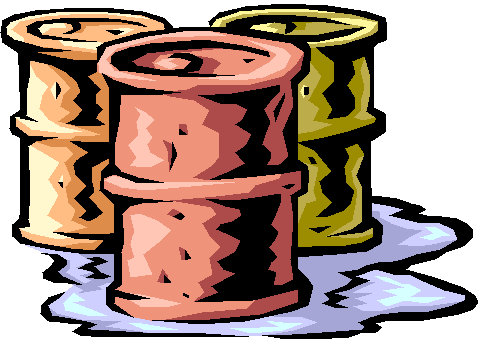It's a New Day in Public Health.
The Florida Department of Health works to protect, promote, and improve the health of all people in Florida through integrated state, county, and community efforts.
Hazardous Materials...Are You Prepared?
Emergency Preparedness
- 321-690-6488
-
Mailing Address
2565 Judge Fran Jamieson Way
Viera, FL 32940
 There are thousands of substances defined by the Occupational Safety and Health Administration (OSHA) as chemicals which represent a physical or health hazard. Approximately 360 of these substances are classified as "extremely hazardous".
There are thousands of substances defined by the Occupational Safety and Health Administration (OSHA) as chemicals which represent a physical or health hazard. Approximately 360 of these substances are classified as "extremely hazardous".
Extremely hazardous substances can be in liquid, gas, or solid form. Exposure to these chemicals can cause serious illness or death. Some examples of extremely hazardous substances and their common use include:
| Adiponitrile (insecticide) | Nitric acid (for etching steel) |
| Ammonia (fertilizer) | Paraquat (herbicide) |
| Chlorine (disinfectant) | Phenol (disinfectant) |
| Formaldehyde (preservative) | Sulfuric acid (used in batteries) |
| Hydroquinone (photo developer) | Sulfur Dioxide (food additive) |
| Methyl Bromide (refrigerant) | Dry cleaning materials |
For Your Protection
If you see an accident or incident that may involve hazardous materials, please notify the emergency authorities at 9-1-1, and briefly report what you have seen. Let the authorities handle the situation from there. Do not approach a hazardous materials emergency scene. You may endanger your life and the lives of others. If there is an emergency, you will be informed by the news media and the local authorities. Emergency officials will provide timely, accurate information and instructions. Do as they say.
If you are told to protect your breathing:
- Cover your nose and mouth with a large wet bath towel or cloth.
If you are told to stay indoors:
- Remain indoors until further notice.
- Close all doors and windows. Use masking tape or a damp towel to seal the opening, if possible.
- Turn off all types of ventilation, unless otherwise instructed.
- Do not use fireplaces and close the dampers.
- Cover or refrigerate any uncovered food.
- Stay tuned to a local radio or television station for official information.
If you are told to evacuate:
- Lock all doors and windows.
- Turn off appliances (except refrigerator) and faucets.
- Enact your pet plan.
- Keep your car vents and windows closed. Do not use the heater or air conditioner. Drive carefully.
- Bring items from your disaster supply kit.
If you have family in a nursing home or hospital:
These facilities have their own evacuation procedures, so please do not try to pick up your relative. Check in advance with the facility to determine their evacuation procedures. Local radio and television stations will announce where patients are being moved.
If your children are in school:
If your children are in school during an accident, please do not try to pick them up. They will be transported to pickup areas outside the affected area, if necessary. Local radio and television stations will announce when and where parents can pick up their children. School personnel will supervise and care for the children until parents pick them up.
If you have livestock:
- Place the animals in an enclosed shelter, if possible.
- Leave plenty of food and water for several days.
- Tune to a local radio or television station for further instructions.
If you grow food products:
- Do not eat or sell products.
- Protective actions (such as washing, discarding, etc.) are specific to the crops affected and their maturity at the time of contamination.
- For more information, contact your local agricultural extension agent.



Connect with DOH